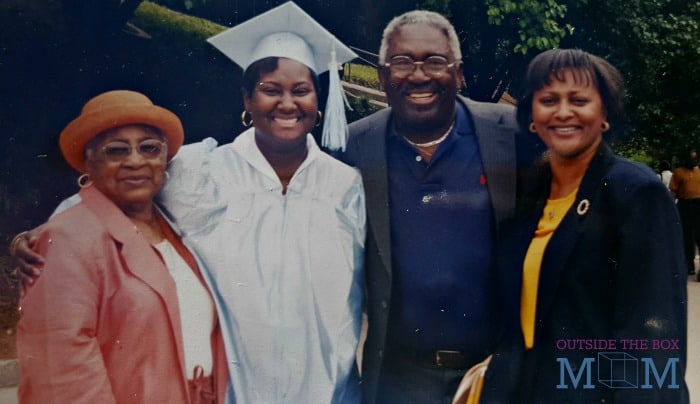Wondering what you can do as a parent to improve your child’s chances of getting into their favorite college? Here is a list of five things parents should do to help their kids get into college.
My son is a rising Freshman at a private university, here in Virginia, in the Fall. I know first-hand how important my son’s guidance counselor was in applying to colleges, etc.
My dream was to be the first person in my family to graduate from college. I was accepted into three colleges in North Carolina, including my dream school – the University of North Carolina at Chapel Hill.
During my senior year in high school, I applied for many scholarships to defray the costs of attending an out of state college and thankfully was awarded several.
If you are trying to save money, here are the cheapest online college degree programs.
My parents couldn’t afford to finance my expenses, so I worked throughout the duration of my college years. I paid for my own living expenses, transportation, etc. by working 30-40 hours a week all year long.
Because I didn’t give up, I was able to figure out a way to make it happen and actually pulled it off! I became the first person in my family to graduate from college.

The following tips were provided by John Morganelli Jr., Former Ivy League Director of Admissions at Cornell University. You can find him at IvyLeagueConsultant.com.
Which steps should parents take to help their kids become interesting to colleges?
There are three main qualities applicants must exhibit, they are:
- Curious: Do they have questions about the world around them?
- Explorative: Are they motivated enough to get up and do something about those questions?
- Contributive: How will they use their experiences to contribute something to the community around them?
The only thing young people cannot do is nothing. Far too often I hear students say, “I don’t know what I like.” I always say, exploring is an active process. It takes time and energy. Keep exploring, have patience, explorers don’t always find what they are looking for right away.
How can students and parents get the cooperation of guidance counselors?
Guidance counselors are very important. I wrote an article entitled “High School Guidance Counselors – More Power than You Know” that illustrates how important this relationship can be.
I think there are two important things when it comes to ensuring the counselor is adequately advocating on your behalf:
- Start building the relationship early. A few months before applications are due is not the time to build a relationship.
- Make sure they understand your “academic narrative.” When I say academic narrative, I mean: what do you want to study, why do you want to study it, how did you explore it, and what types of contributions are you ready to make to the community dedicated to growing their knowledge in this academic area?
What makes a guidance counselor want to advocate for a student?
I think they advocate for students that they believe are a great fit for a specific institution. But, in order for them to believe that, they need to understand the “academic narrative” noted above.
How do parents and students know which extracurricular activities are important to admissions directors?
I go back to the academic narrative. In the end, the colleges will want to know what you want to study and how you explored that area of academic interest.
The extracurricular engagement experiences can start broadly in 9th grade when the student is exploring but should narrow as high school progresses.
By 11th grade, the student should be engaging in a variety of experiences (in-school clubs, summer programs, research, camps, competitions, etc.) that illustrate engagement from a variety of different environments and perspectives.
Is there anything parents/students should not do when it comes to working with guidance counselors and/or admissions directors?
I think the most important thing to remember is that the application needs to be consistent. Meaning, if the student states in their application that they want to study sociology, with no mention of medical school, and the guidance counselor indicates the student “will make a great physician one day like her mother,” there is an inconsistency in the academic narrative. This student likely will not be admitted at a selective college or university.
John believes that students without access to accurate information are at a distinct disadvantage against students that understand the process and enter with a strategy. Our team’s experience in Ivy League Admissions provided for the rare opportunity for an inside look into the admissions strategies employed by most of the most selective colleges in the country. The truth is, most college consultants offer little more than the ability to edit an essay.
We are not your typical consultants. We aren’t guessing. We’ve been there. Our perspectives are based on reviewing tens of thousands of applications for admissions. They are based on writing the interview questions and managing selection committees. We try our best to provide insight almost no one else in the country can provide.
Interview with John Morganelli Jr., Former Ivy League Director of Admissions at Cornell University. You can find him at IvyLeagueConsultant.com.
As you’re applying, check out this step-by-step guide on writing beautiful personal statements for college and putting together an awesome college application:
- Four ways to support your child when choosing a college
- 6 Strategies for Improving Your High Schooler’s College Admission Chances
- The Top Tips to Get Great College Recommendation Letters
- Four Popular College Studies Paths
- 5 Tips for Seniors Picking Colleges
- 4 Unusual Ways To Save Money on College
- Tips To Succeed While Taking Online Classes
[…] I wanted to share an article with you featured on “Outside the Box” mom titled “Outside the Box Mom: 5 Things Parents Need to Know about College. […]